LUSAKA, Zambia (BP)—When Ricky Wilson began taking African American pastors on mission trips to Zambia in 2008, he had to dispel a myth.
“A number of the Africans have shared with us, what they were told (in the past) by the white missionaries, is that African Americans don’t care about the spiritual state of Africans in Africa,” Wilson said.
“Because of the conflicts and issues that African Americans were dealing with in America, (we) had a lot on our hands during those times. But it’s not because people did not care. If you notice,” the earlier groups told Zambian pastors, “we brought all these pastors. That lets you know somebody must care.”
Wilson took a team of 21 African American pastors and laypersons—including two Texas Baptist pastors—to Zambia April 22-May 6 for a multifaceted mission outreach through the Zambia Partnership he founded 15 years ago. Wilson is senior pastor of Christian Faith Fellowship in Downingtown, Pa.
Texans participating included Ross Cullins, senior pastor of Solid Rock Missionary Baptist Church in Houston, and Leonard Leach, pastor of Mt. Hebron Missionary Baptist Church in Garland.
A $5,000 George Liele Scholarship, an incentive launched in 2021 by the National African American Fellowship of the Southern Baptist Convention in partnership with the International Mission Board, helped cover expenses.
Those taking the trip raised their own fare and other expenses in the two years preceding the trip, which Wilson said amounted to $165,000.
Partnership produces multifaceted ministries
The team held three days of simultaneous revivals at several churches, conducted pastors’ and women’s conferences and training, conducted community cleanup, held a multi-village cookout, and in advance of the trip, sent clothing and books. The partnership has built nine water wells since its founding, including two completed in 2022.
Revivals drew standing-room-only crowds. Vacation Bible School drew 500 to 700 youth daily, and the cookout planned for 300 drew about 1,000, Wilson said.
Jerome Coleman, NAAF eastern regional director and senior pastor of First Baptist Church of Crestmont in Willow Grove, Pa., describes the George Liele Scholarship as a recognition that African Americans have always been on mission.
“Missions for African Americans starts in the community and expands from there. We take seriously Acts 1:8, ‘And you will be my witnesses in Jerusalem, and in all Judea and Samaria, and to the ends of the earth,’” Coleman told Baptist Press. “From South Carolina, to Georgia, to Jamaica, Liele embodied what it is to be a witness for Jesus.
“We are godly proud that Liele has finally been recognized, not only as the first American missionary, but if William Carey is considered ‘the father’ of the modern missionary movement, then George Liele is ‘the grandfather,’ since he left America and preached the gospel in Jamaica 10 years before Carey left England for India.
“We are overjoyed that, along with Annie Armstrong and Lottie Moon, (Liele) is now on the pantheon of SBC missionaries.”
Blessed to have an relationship with God
Larry Anderson, director of church health and evangelism for the Baptist Resource Network of Pennsylvania/South Jersey, traveled to Zambia for the first time this year after making other mission trips to Africa.
The Zambians he ministered to considered themselves blessed to be able to worship the Lord irrespective of any wealth, Anderson said, with praise and worship lasting 45 minutes before the sermon was preached.
“It impacted me in a major way in regard to the appreciation of the Lord and the worship of the Lord that wasn’t (based) on materialism,” Anderson said. “These folks were blessed. They were willing to worship and praise the Lord for hours. And they may have 10 percent of the materialism that we have here in America.
“We don’t really believe that we’re blessed unless we have stuff,” Anderson said. “And they believe that they’re blessed just because they have a relationship with the Lord.”
‘Ask Me Why I’m Not in Church’
Anderson, co-author with Kyle Canty of Ask Me Why I’m Not in Church, conducted a workshop on reaching the community. In preparation, he sent 100 copies of the book to Zambia in 2020, when the trip was delayed by the COVID-19 pandemic, and conducted a survey months in advance of the trip about the needs of the communities pastors serve there.
“Based on that, we went over with workbooks, with T-shirts and we created a ‘Ask Me Why I’m Not In Church’ evangelism plan and strategy for those pastors,” Anderson said. “They were so appreciative.
“The shirts are meant to be thought-provoking. One of the pastors walked right out of the conference, got into a rideshare, somebody asked him why wasn’t he in church, and he shared his faith, and this guy accepted Christ. That was the highlight.”
Wilson is working to expose other African American pastors to missions on the African continent.
Zambian pastors appreciate meeting pastors on mission who share their skin color, Wilson said. He and another pastor visited Zambia a year in advance of the trip to plan the outreach conducted April 22-May 6.
“One of the things that we found enjoyable in dispelling the myth of African Americans’ absence in Africa, is that we were poisoned against what life is like in Africa,” Wilson said. “But if a person has never been there, you really can’t say what it is.
“I’ve shared with them, … I’ve done work in Kenya, Zimbabwe, South Africa, Namibia, Botswana and Zambia,” he said, “and I’ve seen the beauty of the continent, and the beauty of the people.”
Education, evangelism, edification, economic development
Wilson encourages U.S.–Zambian church partnerships to equip Zambian churches to impact communities for Christ through education, evangelism, edification and economic development.
A.K. Malemba, pastor of the multisite Moving Gospel Ministries in Zambia, served as the central host pastor. In the 15 years the Zambia Partnership has taken mission trips to Zambia, Wilson said, Malemba has planted 21 churches and leads a network of 31 congregations.
In addition to Cullins and Leach, African American Southern Baptist pastors and leaders joining Wilson, Anderson and Canty on the trip were George Blount, senior pastor of The Rock Community Baptist Church, Lansdowne, Pa.; Byron Day, pastor of Emmanuel Baptist Church in Laurel, Md.; Hal Hopkins, pastor of Lighthouse Baptist Church of the Lehigh Valley in Breinigsville, Pa.; Brian King, senior pastor of Ezekiel Baptist Church, Philadelphia; Victor Kirk Sr., pastor of Sharon Bible Fellowship Church in Lanham, Md.; Stan Williams, Baptist Resource Network director of Next Collegiate Ministry; and Keith Watkins, senior pastor, New City Church Downtown, Macon, Ga.
The Liele scholarship is funded primarily through the approximately 4,000 congregations comprising NAAF, Coleman said, with additional funding from IMB and other contributors.
“The hope is that as awareness of the scholarship increases, funding from IMB, NAAF, other SBC churches, and other contributors will increase as well,” Coleman said. “We would love to get matching funds, an individual, group, entity, or church that would match the dollars that are contributed each year so that we can increasingly achieve the scholarship’s goal of reflecting the diversity of the Southern Baptist Convention by mobilizing and sending African American missionaries around the globe to reach a diversity of people groups with the gospel of Jesus Christ.”


 The commission released its report,
The commission released its report, 

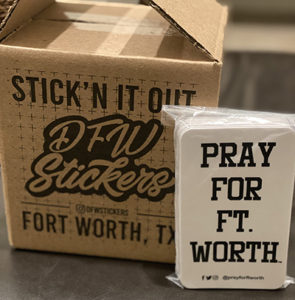
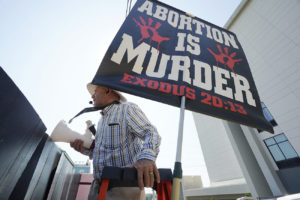
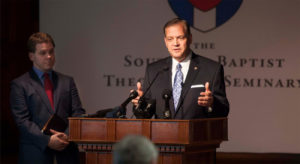
 Basing his sermon on John 1:35-51, West identified four categories of individuals Jesus called as disciples.
Basing his sermon on John 1:35-51, West identified four categories of individuals Jesus called as disciples.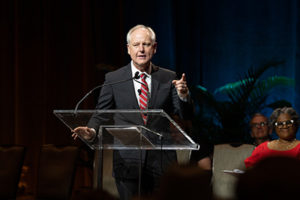
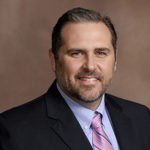
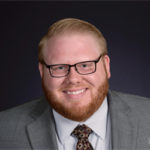
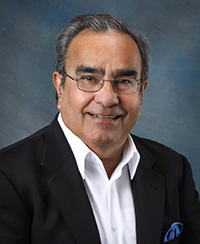 David N. Guel, Texas Baptist pastor and church starter, died June 20. He was 78. He was born Jan. 25, 1944, in Houston to Margarito Guel and Virginia Diaz Guel. The youngest of four children, he grew up frequently attending the church where he would eventually meet his future bride. At age 17, he enlisted in the U.S. Air Force. During his eight years of service, he was stationed in multiple places, including Wiesbaden, Germany; Washington, D.C.; and Cam Ranh Bay, Vietnam. During his time in Vietnam, Guel felt God’s call to the ministry. He earned his GED while still in the service, and enrolled in Houston Baptist University upon returning home. David ultimately earned a master’s degree and doctorate from Southwestern Baptist Theological Seminary. His early years of ministry focused on evangelism. In his last year in Vietnam, he and fellow servicemen prayed for a Vietnam veterans-led evangelism event. Their prayers were realized in 1970 at Delmar Stadium in Houston. With the help of Houston-area pastors, it was a successful, miraculous week. On Dec. 23, 1972, he married Cecilia Miranda in Houston. As a couple, they committed to starting English-language Hispanic churches. He was recognized as Pastor of the Year in 1986 by the language missions division of the Southern Baptist Convention’s Home Mission Board. He was then called to serve as a church starter with the Baptist General Convention of Texas, and in a dual assignment was appointed as a home missionary with the North American Mission Board. In that capacity, he was instrumental in the establishment of several hundred new churches in Texas. He also influenced churches and pastors to continue the same work both domestically and abroad. Later in his ministry, David became an advocate for strong and compassionate immigration reform and led groups to Washington, D.C., to meet with elected officials to discuss immigration issues. He served more than five decades in fulltime ministry and continued to give his time to churches after he retired as opportunities arose. He is survived by his wife of nearly 50 years, Cecilia Miranda Guel of Houston; sons David Stephan Guel and wife Lauren of Waco; son Eric Nathan Guel and wife Brandi of Waco; daughter Deborah Guel of Houston; and seven grandchildren. His family will receive visitors from 5 p.m. to 7 p.m. on July 6 at the chapel of First Baptist Church of Houston Loop Campus. A celebration of life service will be held at 1 p.m. on July 7, 2022 in the chapel of First Baptist Church of Houston Loop Campus. In lieu of flowers, the family requests donations to
David N. Guel, Texas Baptist pastor and church starter, died June 20. He was 78. He was born Jan. 25, 1944, in Houston to Margarito Guel and Virginia Diaz Guel. The youngest of four children, he grew up frequently attending the church where he would eventually meet his future bride. At age 17, he enlisted in the U.S. Air Force. During his eight years of service, he was stationed in multiple places, including Wiesbaden, Germany; Washington, D.C.; and Cam Ranh Bay, Vietnam. During his time in Vietnam, Guel felt God’s call to the ministry. He earned his GED while still in the service, and enrolled in Houston Baptist University upon returning home. David ultimately earned a master’s degree and doctorate from Southwestern Baptist Theological Seminary. His early years of ministry focused on evangelism. In his last year in Vietnam, he and fellow servicemen prayed for a Vietnam veterans-led evangelism event. Their prayers were realized in 1970 at Delmar Stadium in Houston. With the help of Houston-area pastors, it was a successful, miraculous week. On Dec. 23, 1972, he married Cecilia Miranda in Houston. As a couple, they committed to starting English-language Hispanic churches. He was recognized as Pastor of the Year in 1986 by the language missions division of the Southern Baptist Convention’s Home Mission Board. He was then called to serve as a church starter with the Baptist General Convention of Texas, and in a dual assignment was appointed as a home missionary with the North American Mission Board. In that capacity, he was instrumental in the establishment of several hundred new churches in Texas. He also influenced churches and pastors to continue the same work both domestically and abroad. Later in his ministry, David became an advocate for strong and compassionate immigration reform and led groups to Washington, D.C., to meet with elected officials to discuss immigration issues. He served more than five decades in fulltime ministry and continued to give his time to churches after he retired as opportunities arose. He is survived by his wife of nearly 50 years, Cecilia Miranda Guel of Houston; sons David Stephan Guel and wife Lauren of Waco; son Eric Nathan Guel and wife Brandi of Waco; daughter Deborah Guel of Houston; and seven grandchildren. His family will receive visitors from 5 p.m. to 7 p.m. on July 6 at the chapel of First Baptist Church of Houston Loop Campus. A celebration of life service will be held at 1 p.m. on July 7, 2022 in the chapel of First Baptist Church of Houston Loop Campus. In lieu of flowers, the family requests donations to 